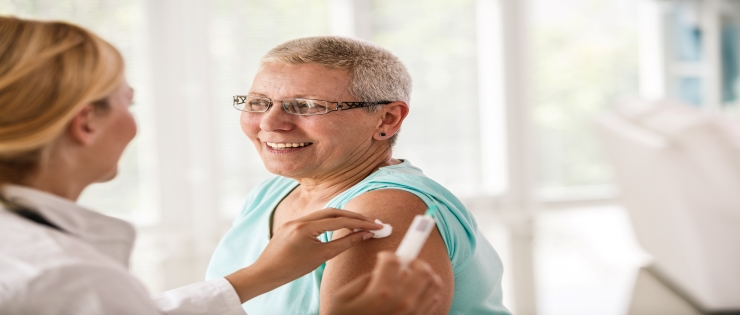
After 12 months of Covid-19, including all the associated disruptions, losses, distress and more, hope seems to be just around the corner.
By referring to hope, I’m not implying that everything will be perfect or even that there’ll be no more worry; but just that the imminent rollout of a vaccine will almost certainly mean a more likely return to some sort of normal.
In order to really be effective, however, a significant proportion of the population will need to agree to being vaccinated. This shouldn’t necessarily be an issue, especially here in Australia where we’ve had a pretty good record with immunisation programs for things like Hepatitis B, Tetanus, polio, measles and more.
But there are a few obstacles, including the many myths and misconceptions about the injections and their side-effects which are being spread, more often than not, but those without proper knowledge or qualifications in the relevant areas of science and medicine.
I don’t propose to address these here, in this article, as many others who’re far more qualified than me have addressed them in numerous other forums. But there’s another factor that also makes it difficult for some to “get the jab”, one quite separate from the misinformation about vaccines, and their supposed side effects, and one much more psychological in nature.
I’m referring to … needle anxiety!
This is important because injections are among the most common medical procedures, and so fear of needles can result in avoidance of preventive measures and treatment – including, of course, vaccines.
A fear of needles is very prevalent in children, affecting the majority of young people; but the numbers are less when adults are assessed. It still, however, remains very high with most researchers concluding that approximately 20-30% of adults have a fear of needles and 3-10% having a level of fear so intense and disruptive that it could be labelled as a phobia.
In short, if needle anxiety impedes peoples’ willingness to participate in vaccination treatment programs then it potentially jeopardises their health and wellbeing, and the health and wellbeing of those around them.
The good news is that anxiety generally, and needle anxiety more specifically, is very treatable. I’m not suggesting it’s easy, but it is very possible. And in more good news, I’m going to briefly outline a few simple tips for you, or those you know, to put into practice so you, and those you know, can benefit from these important preventative interventions.
- To begin with, listen to the experts with recognised and relevant qualifications. Take your medical advice from those with science/medical degrees … not necessarily those with a large social media following
- Once you’ve decided to do the right thing and get vaccinated, try not to think about it too much before the actual appointment. Accept the reality of some anxiety but recognise also that worrying about it over and over again, before you even get to the doctors, only increases and extends the distress you’re going to experience. If you have to do something that’s unpleasant, only do it once! Not multiple times in your mind in the lead up
- When you get to your doctors, try not to think too much about what’s going to happen. Most injections only take, quite literally, a second or two; that’s it. I don’t deny there might be some small amount of pain, but any pain will be over and done with before you know it
- If you think it might help, plug in your earphones and listen to your favourite tunes, or a meditation app. I’m sure the nurse or doctor won’t mind you using anything that might help you keep calm and relaxed
- Just as importantly, focus on the benefits; the fact that this second or two of pain will likely reduce your chances of getting sick, which could be days or weeks or months of pain and discomfort or even worse. In simple terms, try to think about all the advantages more than you think about any possible disadvantages
So, there you have it. A few simple tips to help you do the right thing, for you and your community. Not many people love getting injections; but any associated anxiety need not get in the way of you doing what you need to do to stay healthy and well.